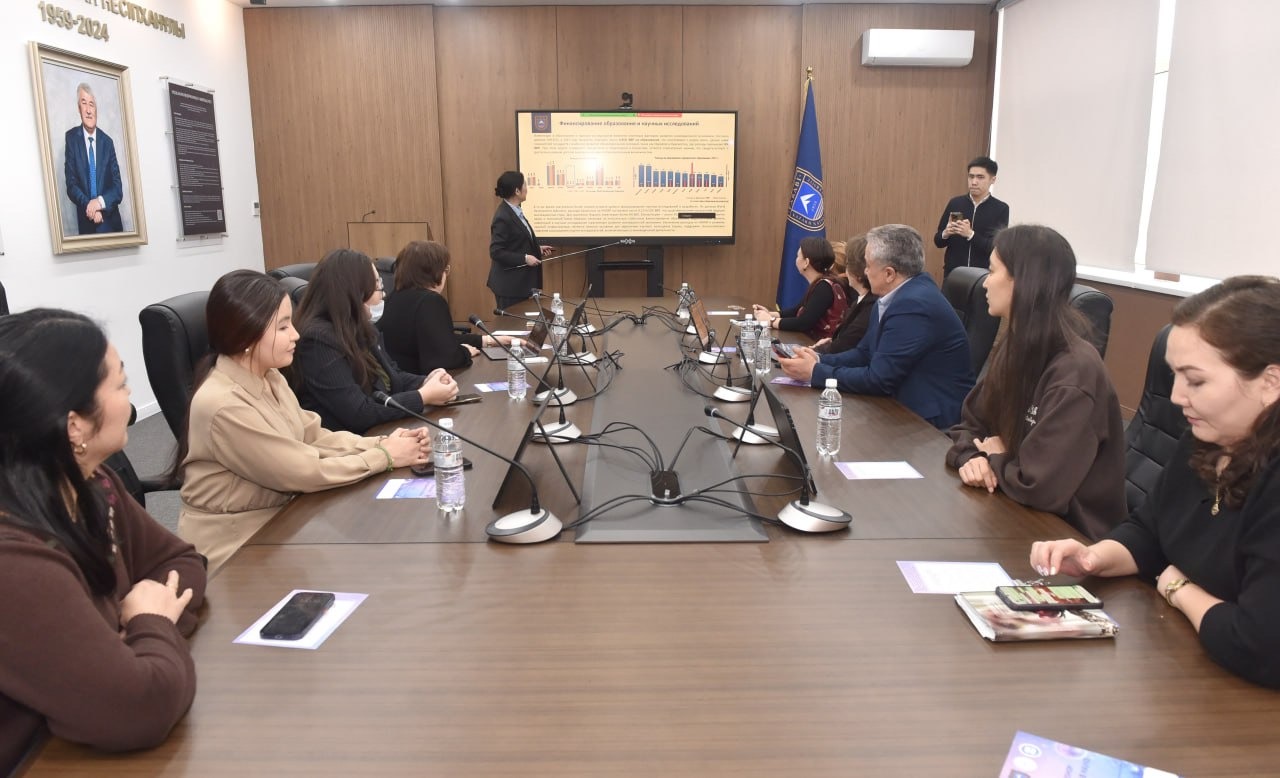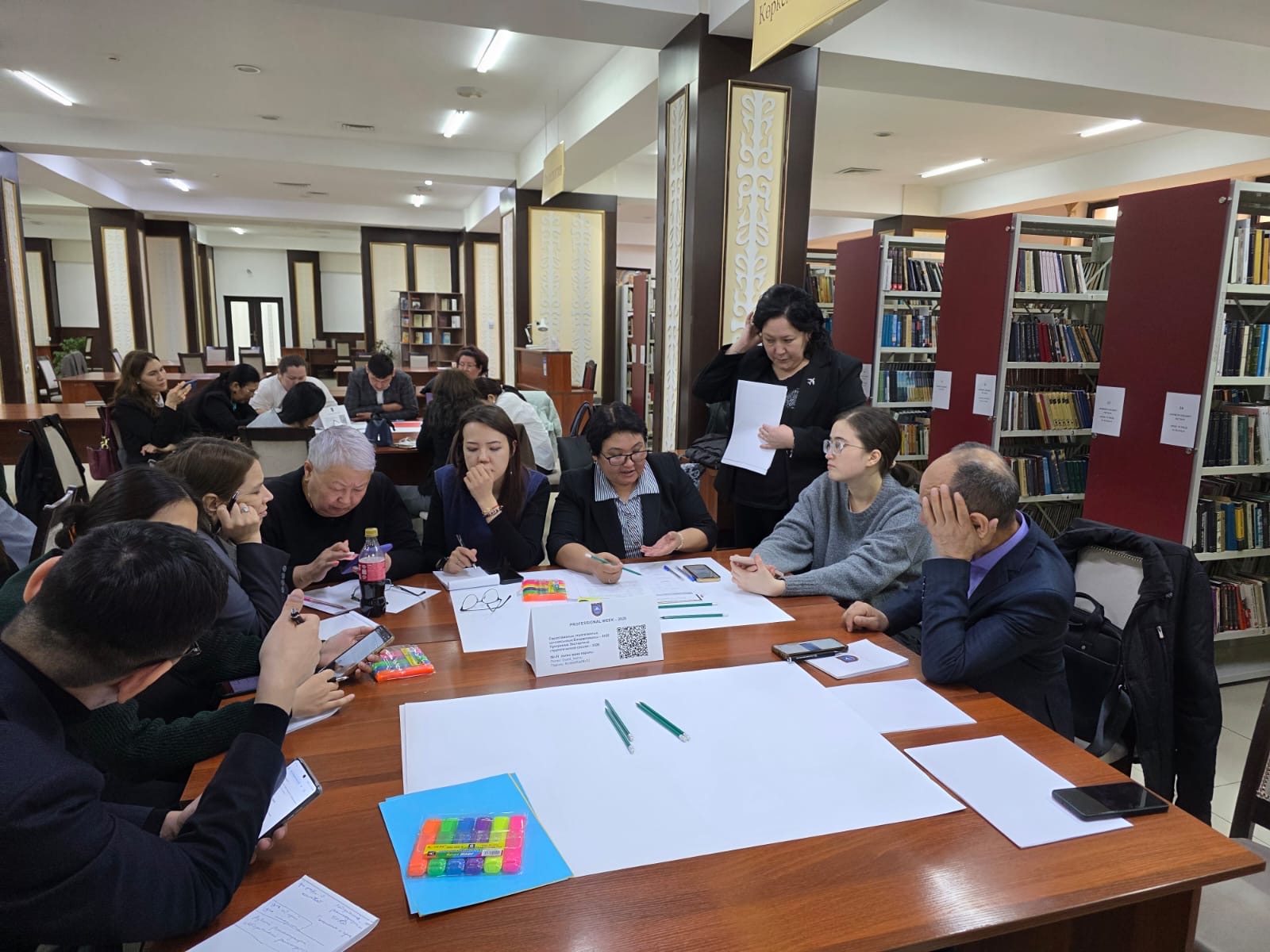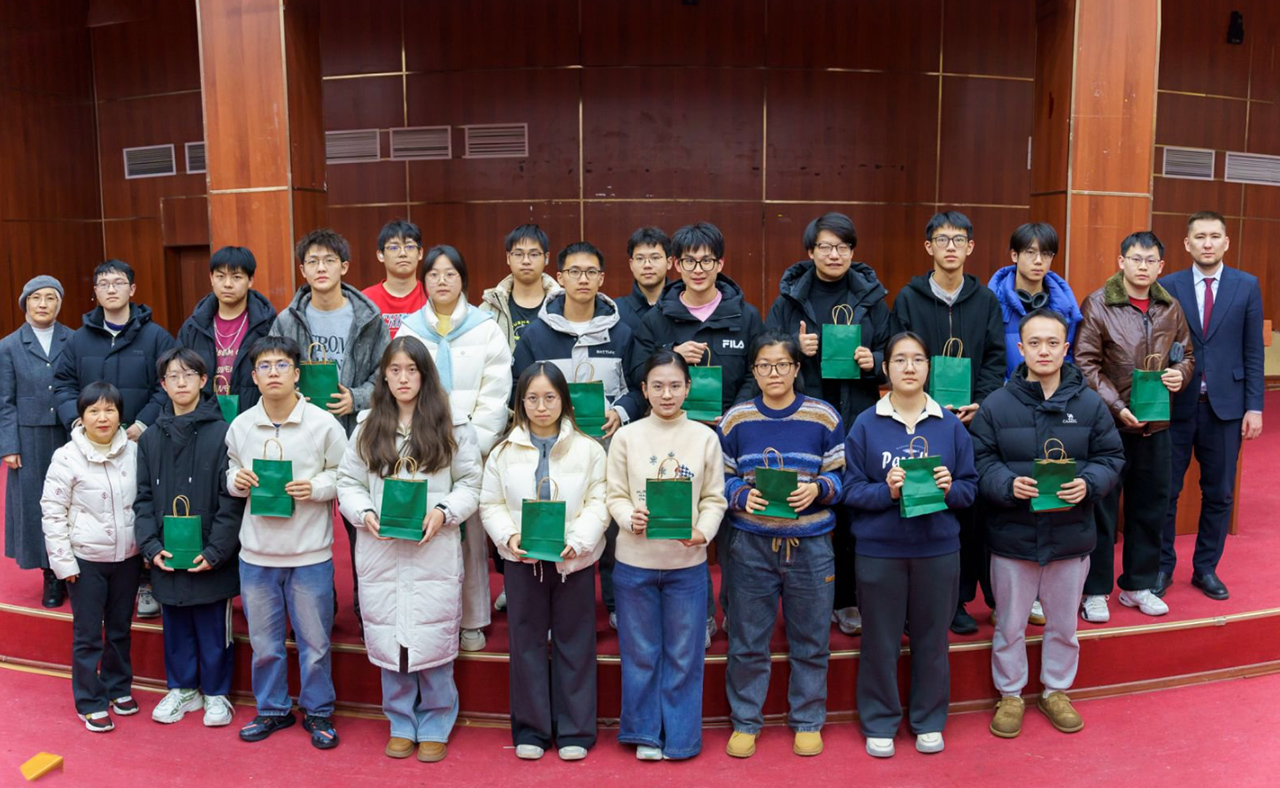- Main
- News
- From Theory to Practice: Current Challenges and Opportunities in the Meteorological Profession
From Theory to Practice: Current Challenges and Opportunities in the Meteorological Profession
To achieve SDG 4 (Quality Education), SDG 8 (Decent Work and Economic Growth) on 14 November 2024 at the Department of Meteorology and Hydrology of the Faculty of Geography and Environmental Sciences held a Leadership Lecture of the Head of the Department of Meteorological Support and Information of RSE ‘Kazaeronavigatsiya’ Vasilina Kostikova on the topic: “Activities of RSE ‘Kazaeronavigatsiya’ and opportunities for internship and employment of meteorology students”.
Vasilina Kostikova told about the work of an aviation forecaster. Vasilina noted that the peculiarity of an aviation forecaster is that he/she makes more specific forecasts and provides for those nuances that are important for flights. Aviation forecaster is responsible for providing up-to-date weather information to pilots and air traffic controllers. This includes developing weather forecasts, issuing hazardous weather warnings and analysing data to improve forecast accuracy. In addition, aviation meteorologists are responsible for monitoring weather conditions and providing advice to pilots and air traffic controllers to ensure safe and efficient flight operations.
Kostikova V. also spoke about new methods of forecasting associated with the development of computer technology and mathematical weather models that allow you to calculate the forecast accurately enough. It was also noted that today all aerodromes of the Republic of Kazakhstan are equipped with modern automated meteorological measuring systems (AMIS) with sets of Finnish field sensors Vaisala, meeting all international standards. They make it possible to provide accurate, reliable values of the actual weather parameters at the aerodrome.
The work of the meteorological service is regulated by the current legislation of the Republic of Kazakhstan, and in accordance with the requirements of the International Civil Aviation Organization - ICAO and the rules of the World Meteorological organization - WMO.
During the lecture, students asked questions about the demands for the profession of meteorologist, career opportunities, and what competencies a student should have to be successful and competitive in the chosen profession of meteorologist.



